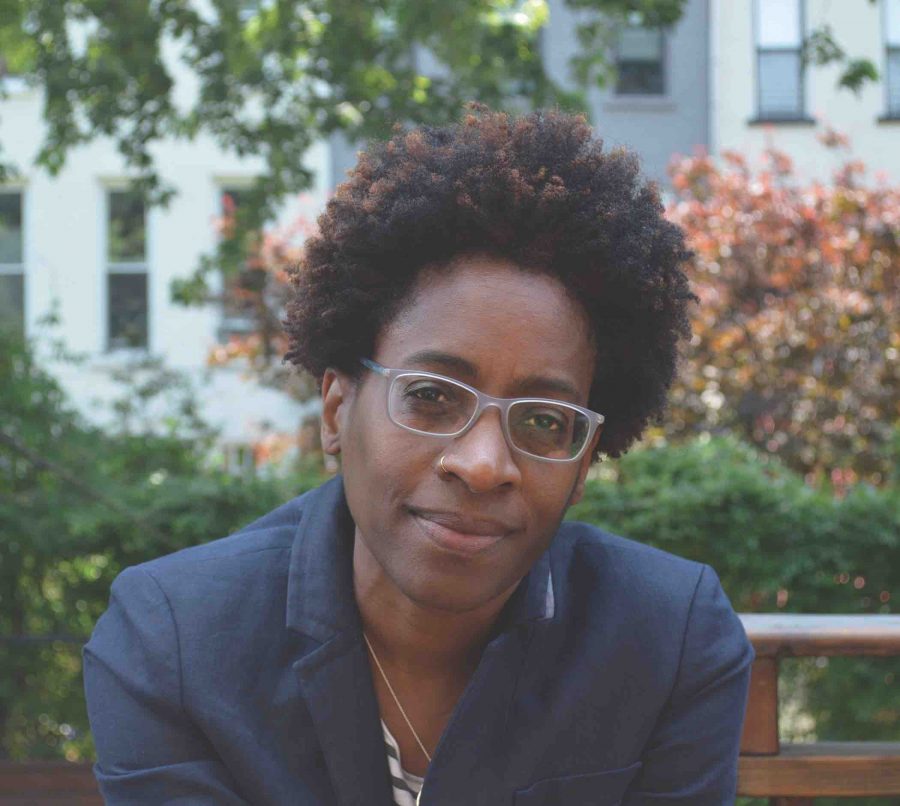People of all ages and backgrounds flooded into the Gould Auditorium on Tuesday. Jan. 23, to hear Jacqueline Woodson speak. She is the author of over 30 children’s books and the 2018-19 National Ambassador for Young People’s Literature.
Woodson is best known for her Newbery Honor-winning titles “Brown Girl Dreaming,” “Feathers,” “After Tupac and D Foster” and “Show Way.”
The conversation centered on sharing stories of family, underrepresented people and the ability to see onself in literature.
Woodson opened up the conversation by sharing her family history through discussion of her book “Show Way.” She explained the writing process as a journey in which she explored herself and poetry — a writing form that scared her when she was growing up.
“It was written by these people that were smarter than me, whiter than me or dead,” Woodson said.
During her daily trips to the public library, Woodson found poetry she could relate to and sought to create pieces that would apply to people like herself.
Throughout her journey, Woodson had multiple conversations with family as she worked to accurately track her lineage. She urged the audience to talk to the older people in their lives, because when they die, their stories go with them.
“Memories come in small moments,” Woodson said.
In literature it’s important to have “mirrors and windows,” as Woodson put it. Windows show other people’s worlds, and the mirrors reflect the reader’s own.
When she was young, Woodson often felt as if she saw more windows looking into the white world than mirrors of her own.
Woodson said a teacher once told her she didn’t have any books about the experiences of black people because she didn’t have any black students. To this Woodson said, “Young people having access to what speaks to them unlocks the validity of their existence, and sometimes you have to start the conversation at the letter A.”
She talked about what it means to be a writer.
“As a writer there’s a deep responsibility to yourself and people that come to your literature,” Woodson said. “I rewrite and rewrite until the story has an effect. … If I don’t laugh or cry on the first draft, it’s not good enough. I need to feel something.”
Woodson has a diverse background — she has struggled through poverty and was raised by a Jehovah’s Witness mother and grandmother and a Muslim uncle. She was born in Ohio, but grew up in South Carolina and New York. Through her writing, she seeks to explore these different experiences.
“It is dangerous for people to write about these communities when they know nothing,” Woodson said.
In her work, Woodson not only hopes to increase representation of people like her, but also looks to alter perceptions.
“I can’t think about expectations when I’m writing,” Woodson said. “I ask myself, ‘Is this the best book I can write that’s socially responsible, doesn’t hurt anyone and that can change the world?’”
As the National Ambassador for Young People’s Literature, her motto is, “Reading = hope x change; what’s your equation?” She believes books change people, and it is crucial that all-inclusive stories are published.
“When writing about people in literature that are underrepresented, don’t other them,” Woodson said.
@TheChrony


